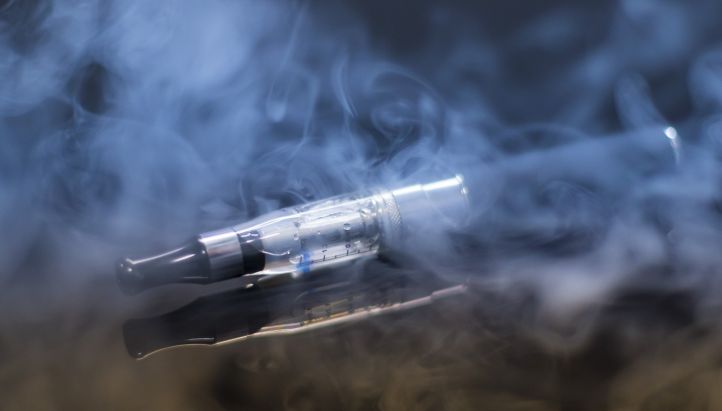NIH Awards $2.3 Million to The Lundquist Institute to Study the Impact of Vaping While Pregnant
Study will allow The Lundquist Institute to determine the multi-generational risks of developing asthma from vaping while pregnant

LOS ANGELES - Studies have shown that pregnant women who smoke increase the risk of their children having asthma, and that those children—even if non-smokers—can pass it on to their own children, but few objective studies have evaluated the effects of vaporized nicotine and vapor flavorings. Investigators from The Lundquist Institute, under the leadership of Virender Rehan, MD, have received a $2.3 million grant from the National Institutes of Health (NIH) to research this multi-generational effect of vaping, or smoking an electronic cigarette, while pregnant.
Vaping while pregnant has become a critical topic of importance as vaping has grown significantly in popularity among young people. According to the U.S. Food and Drug Administration’s 2018 National Youth Tobacco Survey, current e-cigarette use has “increased alarmingly” with over 3.6 million youth currently using e-cigarettes in 2018.
Using established models for the study, investigators will determine whether e-cigarette vapor increases the risk of asthma in the offspring of pregnant mice. They will go on to test whether those offspring, who will not be exposed to e-cigarettes, bear an increased risk of giving birth to offspring with asthma. In other words, can the effects of the vapor in utero on one generation of offspring be transmitted to a subsequent generation that was not exposed to the vapor. The study will also examine whether vaporized nicotine as well as flavorings have independent effects on transgenerational asthma risk.
The study will also assess the effects of nicotine and e-cigarette flavorings on viability and the epigenetic memory of germ cells, seeking to determine how these new flavoring technologies affect cells.
“There has been an erroneous perception that vaping is relatively safe when compared to smoking,” said Dr. Rehan. “These studies will advance our knowledge on the transgenerational risk of vaping and will also help inform regulatory polices concerning exposure to e-cig nicotine and flavoring from vaping.”
Dr. Rehan has worked at The Lundquist Institute for 20 years with a research focus on lung development and repair of lung injury. His studies have vastly expanded our current understanding of the impact of perinatal smoke exposure on the epidemiology of chronic lung disease worldwide, providing novel insights into Bronchopulmonary Dysplasia (BPD), also known as the Chronic Lung Disease of Prematurity and Childhood Asthma. He graduated with a master’s degree from the University College of Medical Sciences in Delhi, India and specializes in providing intensive care to neonates.
“Dr. Rehan is a nationally respected leader in studying the respiratory system,” said The Lundquist Institute’s CEO David Meyer, PhD. “His work investigating the multi-generational effects of vaping and discovering significant insights on asthma help fulfill The Lundquist Institute’s mission of leading healthcare innovation.”
